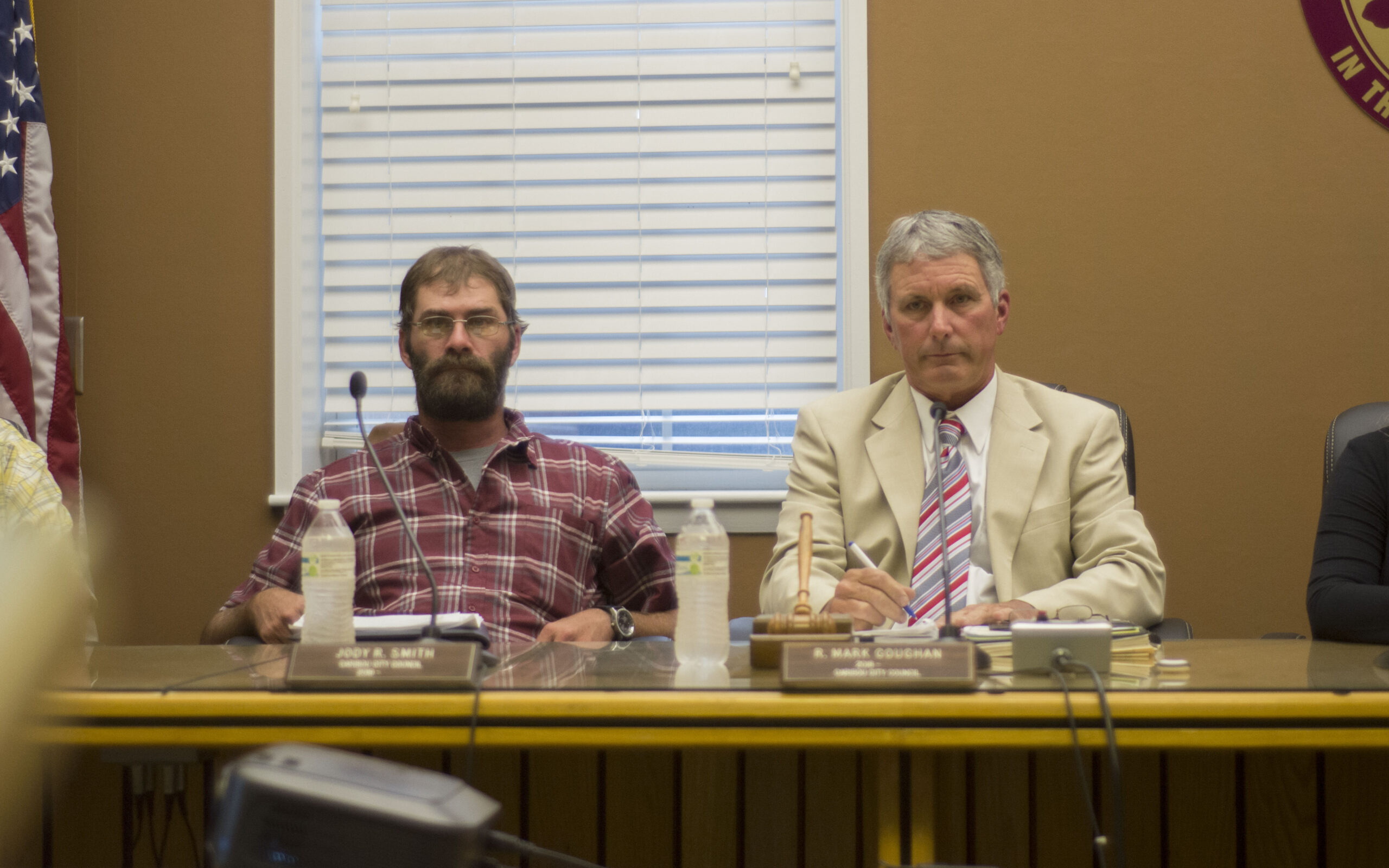
CARIBOU, Maine — Former Caribou Mayor Mark Goughan, who was re-elected in November but resigned later that month, will return to the city council for his new term in January, according to Deputy Mayor Thomas Ayer.
The city is also moving forward with hiring a private investigator to look into who leaked Goughan’s resignation letter, which City Manager Dennis Marker estimated would cost roughly $5,000, based on discussions with the Maine Attorney General’s Office and the Maine Licensed Private Investigators Organization.
In his letter, Goughan said he was resigning from the council as his attendance at budget workshops and committee meetings was below the 80 percent threshold required under the city’s charter. His resignation was originally sent to city council and Marker, but was later posted on Facebook.
During the city council’s Dec. 14 meeting, the last of the calendar year, Ayer said Goughan will be returning on Jan. 4 to be sworn in with newly-elected councilors Courtney Boma and Louella Willey.
Ayer asked the city manager to elaborate on the council’s plans to revisit the charter and its attendance requirements. He said this will ensure that no confusion arises in the future when it comes to attending meetings of other city organizations, something he said he has personally experienced issues with in the past.
Marker added the advice he received from the city’s legal counsel is that the city council is able to police itself in terms of attendance, and that the recommendation moving forward is to establish clear guidelines during the upcoming organizational meeting in January.
“It would be good for the council as a whole to set those ground rules during that meeting,” Marker said.
Marker gave an example of the current guidelines not being clear, and said earlier in the year Mayor Goughan commented that he was going to have Ayer start attending recreation board meetings. The comment, he said, was not a formal appointment or designation, but Ayer was still added as a liaison to the board.
“These are some of those things we need to make sure we get cleaned up,” the city manager said.
Ayer provided another example concerning the planning board. He said the last council liaison to that board “was never there,” and it did not count against them. But when he was appointed as liaison, he said city records showed he did not attend meetings in which he was clearly visible on the city’s cameras.
Because of this, he said the council needs to be more vigilant moving forward, and they are going to start off so everyone knows what to expect.
“This is the direction we’re going to go in,” he said. “These are the boards and committees you need to be appointed to, and that’s that. That way there’s no excuse, and that way we don’t run into the issue of somebody giving a resignation when, technically, he didn’t need to.”
Councilor Hugh Kirkpatrick suggested inviting one or two of the charter commissioners to attend the next meeting to help with any clarification regarding the charter. Ayer agreed, and asked Marker if he could arrange for one or two of the charter committee members to attend the Jan. 4 meeting.
The council also received three written statements from residents during the public comment portion of the meeting, urging the city not to spend money on hiring a private investigator to look into this issue of who may have leaked Goughn’s resignation letter.
According to Maine state law, emails between municipal officials concerning government business are public record. There are, however, over 300 statutory exemptions to the FOAA definition of public record, including disclosure of health care information.
In one letter, sent by Caribou resident Gary Aiken, he asked why the public was not informed of Goughan’s resignation sooner, since the email would be classified as public record under Title 1 General Provisions Chapter 13, Public Records and Proceedings.
He followed up by asking why the council needed to discuss the matter in executive session if the resignation letter is legally a public document; why they needed to hire a private investigator in the first place; what offense had been committed; and what their next steps in the matter would be if anything is discovered.
Two more letters from the public were read, both of which asked the council not to spend any money on the investigator and were also skeptical that any crime had been committed.
The council did not respond to these public comments during the meeting.
In his update, Marker said that after consulting with other municipal managers around the state, he was told that the details of the investigation would be considered a personnel issue and therefore confidential.
“We will have to work with our legal counsel on that information, when it is made public, and how,” he said.







